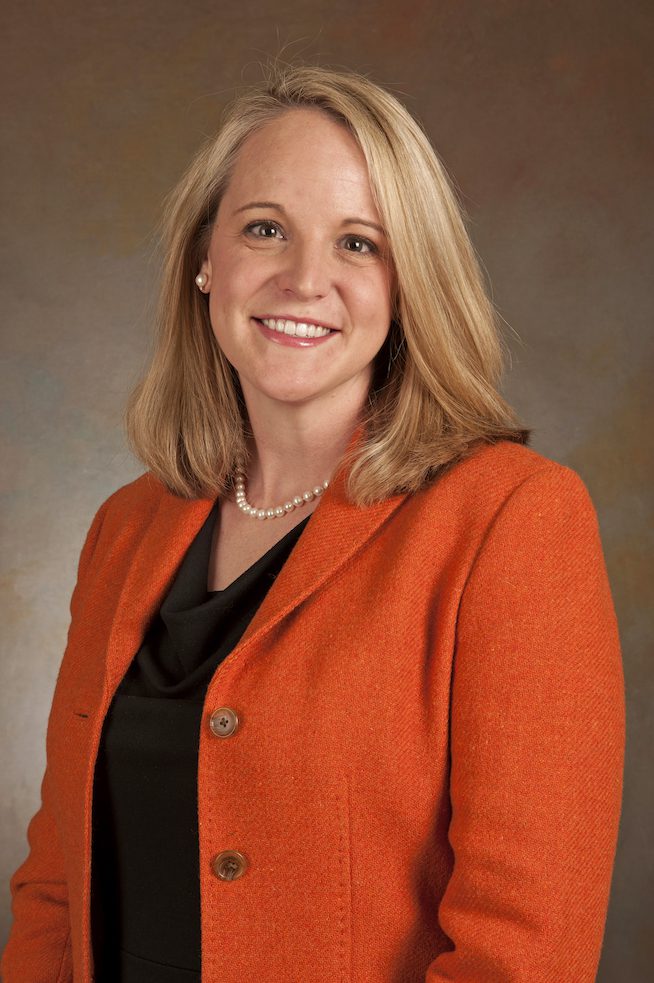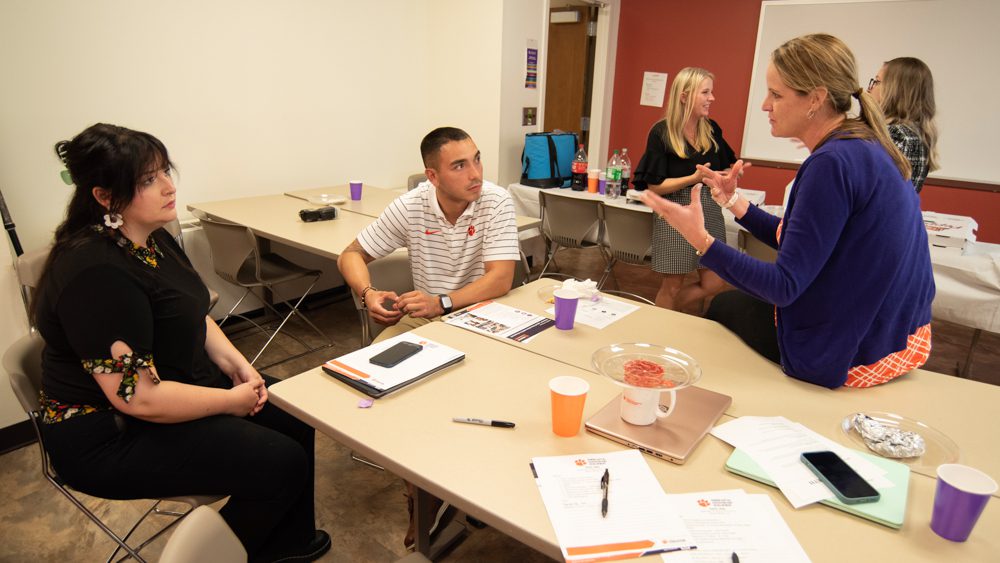A Clemson University researcher in the College of Education is in the middle of a multi-year study of engineering students transferring from technical colleges to universities, which she hopes will result in tools to aid these students along their academic journey.
Kris Frady, assistant professor in the College of Education, received a CAREER award from the National Science Foundation to expand the understanding of the students involved and the role of two-year colleges in the engineering education and career pipeline.
Frady is finalizing data collection that has shed light on assets and challenges for the transfer student population. The next research phase will involve the creation of digital tools that will help to assist students along the way as they enter four-year institutions. However, even in the early stages of her research, Frady has seen how vital this student population is for the state.
“I always knew technical colleges were important, but studying them and their students has revealed how connected they are with local industry and communities,” Frady said. “I believe that understanding such a large student population is important for the future of both higher education and industry in South Carolina and beyond.”
The initial findings from a systematic literature review and student surveys revealed that two- and four-year institutions should prioritize improving advising, support services and general student engagement to affect retention positively. The findings also indicate numerous geographic and demographic nuances that educational leaders should factor into those support services to improve them, and the research provided real-world recommendations for doing so.
The study also took a broad, national look at the issue by interviewing 11 experts, including researchers, influencers and program coordinators.

The overwhelming response from those most familiar with engineering transfer students is that talking only about the challenges facing students is the first misstep. The transfer student population is often viewed from a deficit-based perspective, which ultimately sells its value short, according to Frady.
“It is all too easy to talk about the challenges these students face and the ways they aren’t equipped properly for higher education, but there is unfortunately less talk about what they bring to the table,” Frady said. “They bring knowledge of their own cultures and communities that will ultimately benefit the field, and for communities battling systemic inequities, the transfer pipeline can open up opportunities that just weren’t there before.”
The next phase of the research project will focus on developing an engineering transfer student dashboard, a digital tool to assist transfer students as they grow and move along the two-year-to-four-year higher education pipeline. Upon completing an initial survey, the dashboard would provide automated suggestions, giving students tasks for future development. Students can then work to improve this “score” based on data over time as they prepare for a four-year institution.
Technical colleges and the transfer track in this field are not simply a research interest for Kris Frady, an upstate South Carolina native. She has seen the impact of technical college degrees on her family members and friends from rural areas.
“Most of my lived experience is informed by these institutions and the education they provide, from my own parents to my husband,” Frady said. “I have also taught courses in both two-year and four-year institutions. It’s clear to me that this is a population we should strive to better understand because it is so valuable whether students transfer to a university such as Clemson or go into the workforce with a two-year degree.”
Get in touch and we will connect you with the author or another expert.
Or email us at news@clemson.edu

